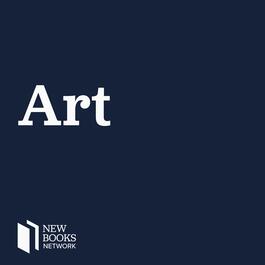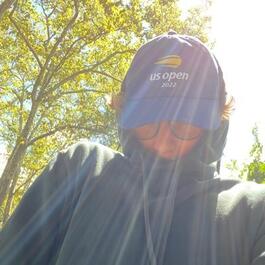
New Books in Art
This podcast is a channel on the New Books Network. The New Books Network is an academic audio library dedicated to public education. In each episode you will hear scholars discuss their recently published research with another expert in their field. Discover our 150+ channels and browse our 28,000+ episodes on our website: newbooksnetwork.com Subscribe to our free weekly Substack newsletter to get informative, engaging content straight to your inbox: https://newbooksnetwork.substack.com/ Follow us on Instagram and Bluesky to learn about more our latest interviews: @newbooksnetwork Support our show by becoming a premium member! https://newbooksnetwork.supportingcast.fm/art
Show episodes

Matthew Davis, "A Biography of a Mountain: The Making and Meaning of Mount Rushmore" (St. Martin's Press, 2025)
Mount Rushmore is something of an American Rorschach test. Some look at the monument and see American patriotic ideals carved into a mountainside. Others see only the rank hypocrisy of American presidents blasted into an Indigenous sacred site. In A Biography of a Mountain: The Making and Meaning of Mount Rushmore, wri
Our contemporary world is inescapably Greek. Whether in a word like “pandemic,” a Freudian state of mind like the “Oedipus complex,” or a replica of the Parthenon in a Chinese theme park, ancient Greek culture shapes the contours of our lives. Ever since the first Roman imitators, we have been continually falling under

David Newheiser et al., "Art-Making as Spiritual Practice: Rituals of Embodied Understanding" (Bloomsbury, 2025)
Art-Making as Spiritual Practice: Rituals of Embodied Understanding (Bloomsbury Academic Press, 2025), edited by Professor David Newheiser, is a new collection asks if it’s possible to consider art-making as a spiritual practice independent of explicit religious belief or content. Where earlier research has focused on

Colin Williamson, "Drawn to Nature: American Animation in the Age of Science" (U Minnesota Press, 2025)
What do technical renderings of plant cells in trees have to do with Disney’s animated opus Fantasia? Quite a bit, as it turns out: such emergent scientific models and ideas about nature were an important inspiration for Disney’s groundbreaking animated realism. In Drawn to Nature: American Animation in the Age of Scie

Maddalena Alvi, "The European Art Market and the First World War: Art, Capital, and the Decline of the Collecting Class, 1910–1925" (Cambridge UP, 2025)
The outbreak of the First World War shattered the established European art market. Amidst fighting, looting, confiscations, expropriation fears and political and economic upheaval, an integrated marketplace shaped by upper-class patrons broke down entirely. In its place, Maddalena Alvi argues, can be found the origins
How can habits of racialization be affected by art, in its reception and its creation? How can a carnal aesthetics help us understand Latinx life? What if we listen to photographs? How might they undo us? Can we be undone? In Carnalities: The Art of Living in Latinidad (Duke UP, 2025), Mariana Ortega focuses on photogr


